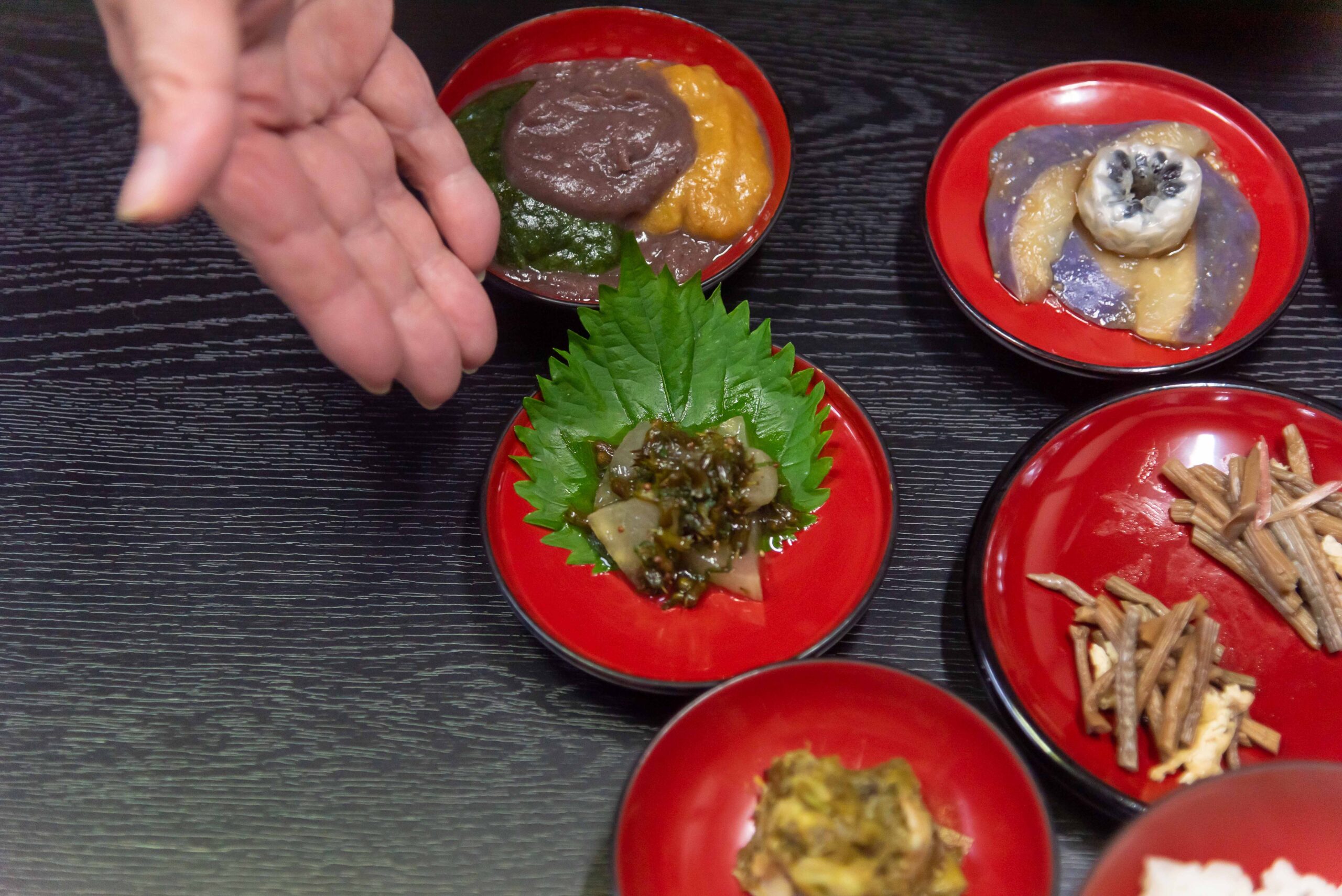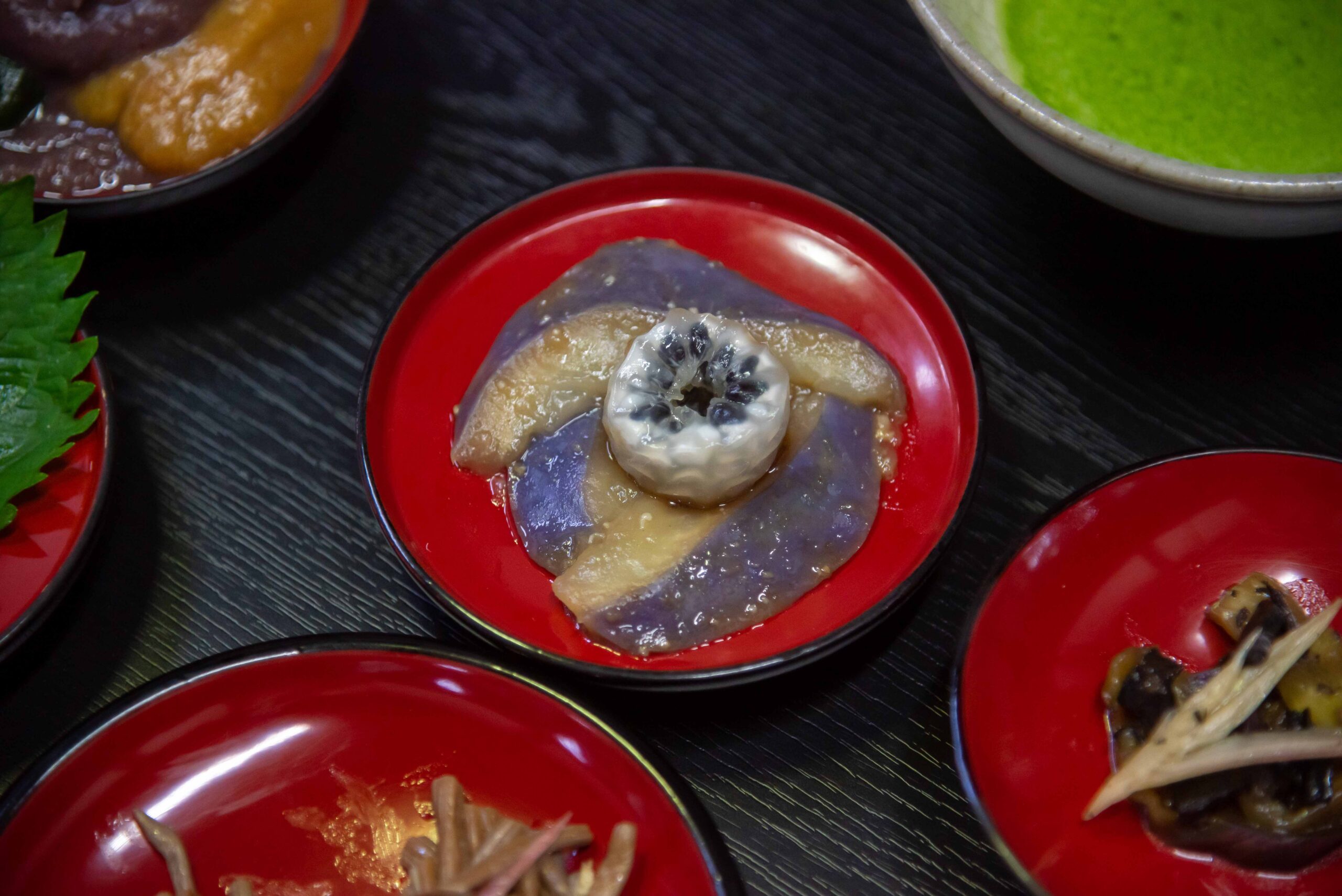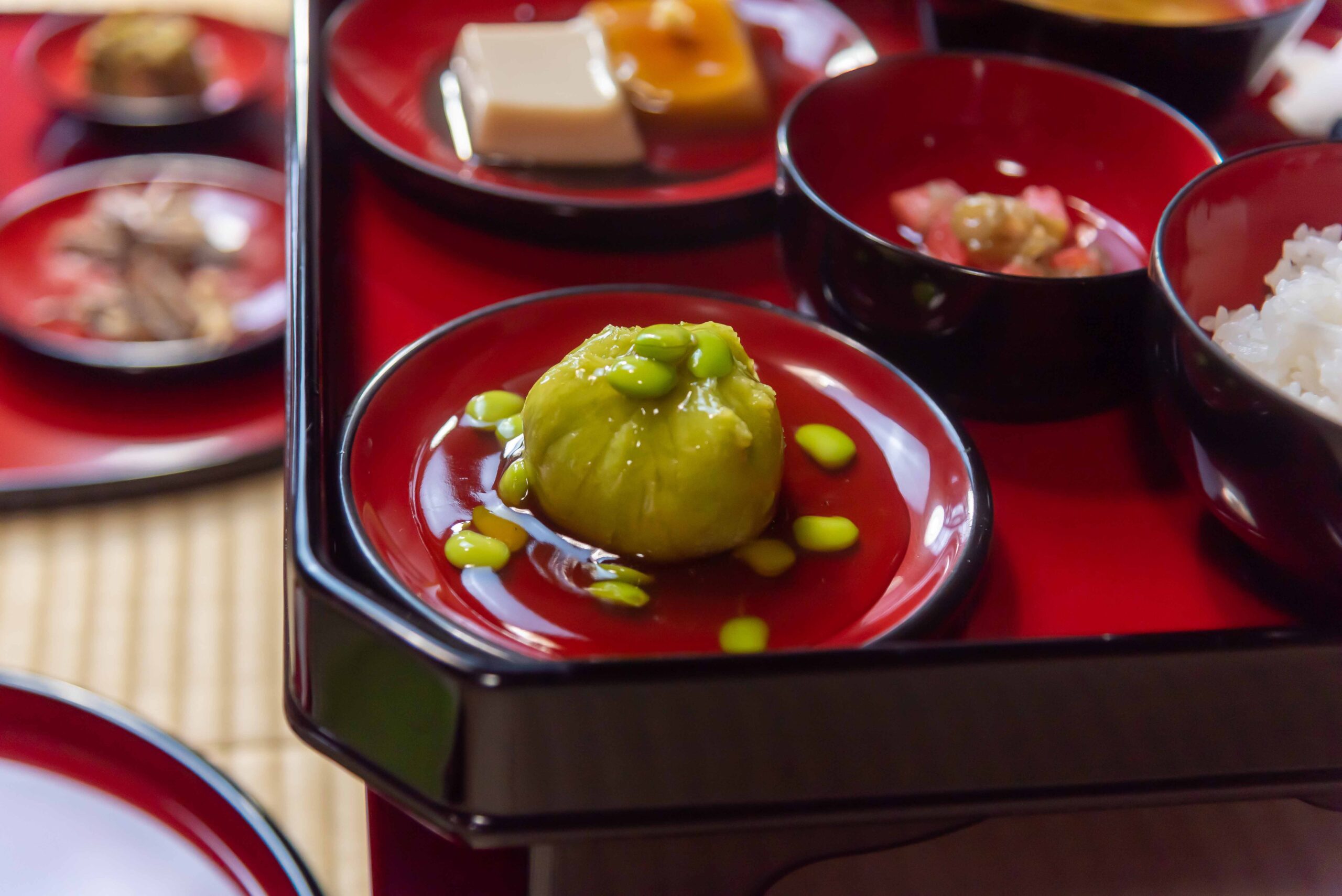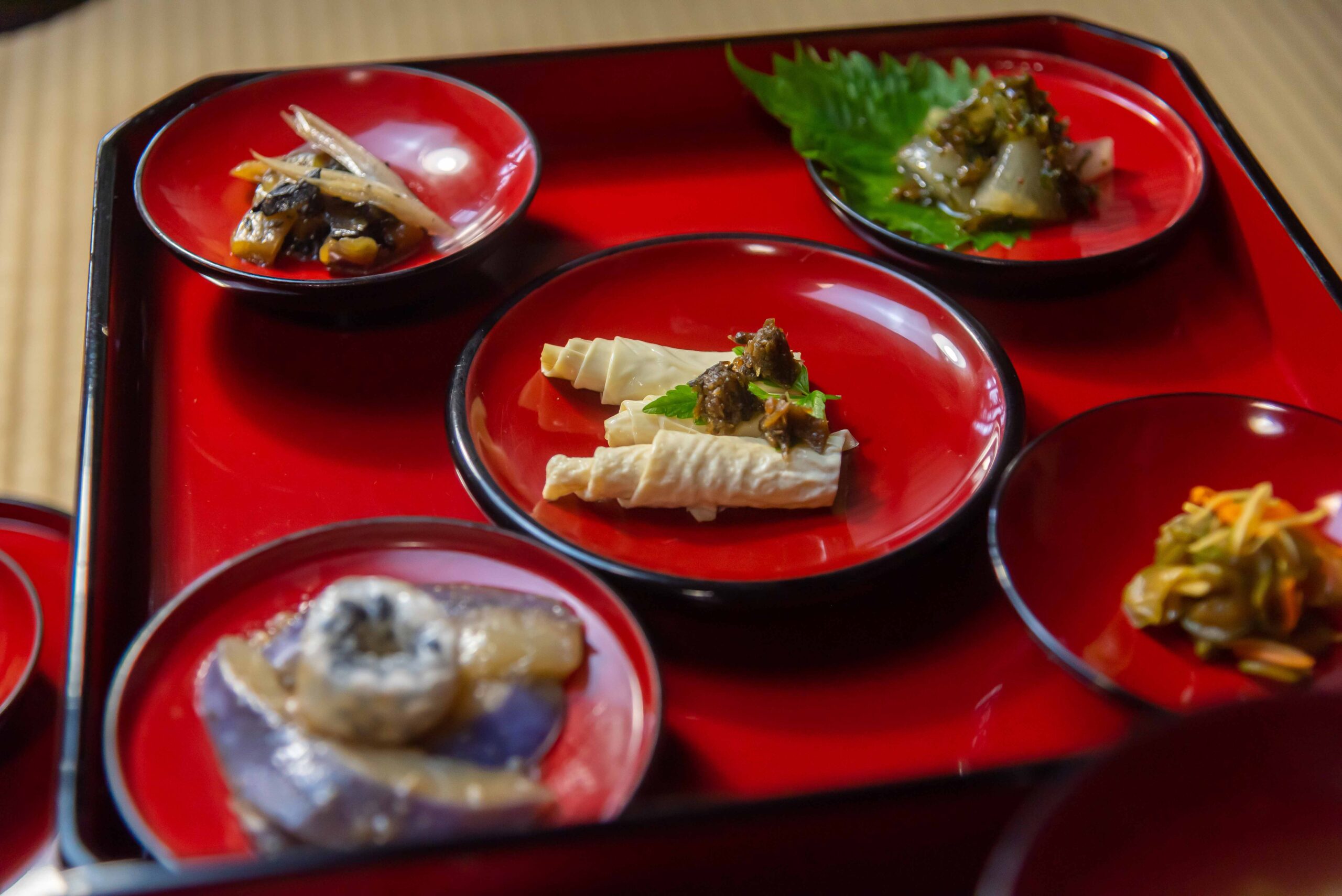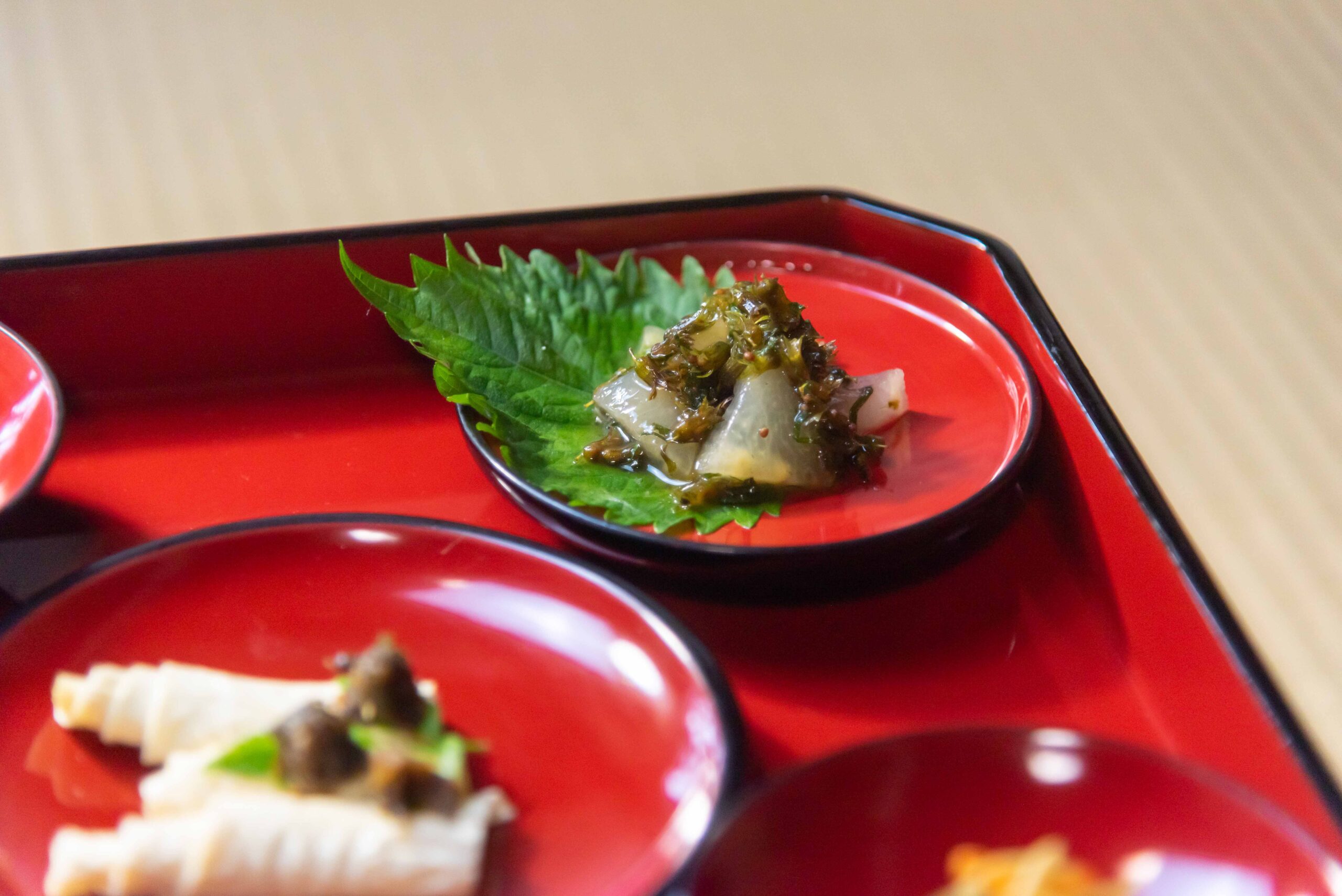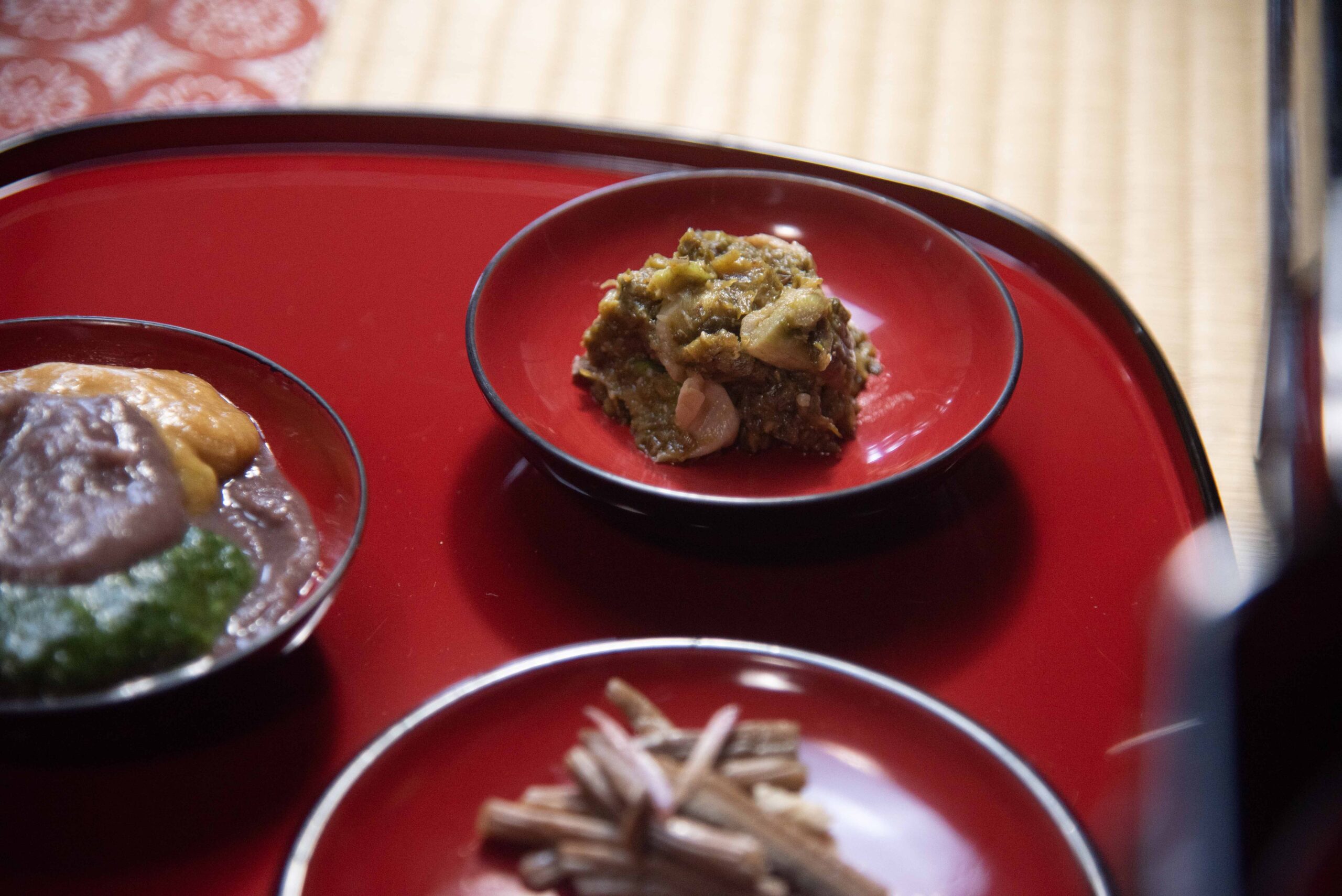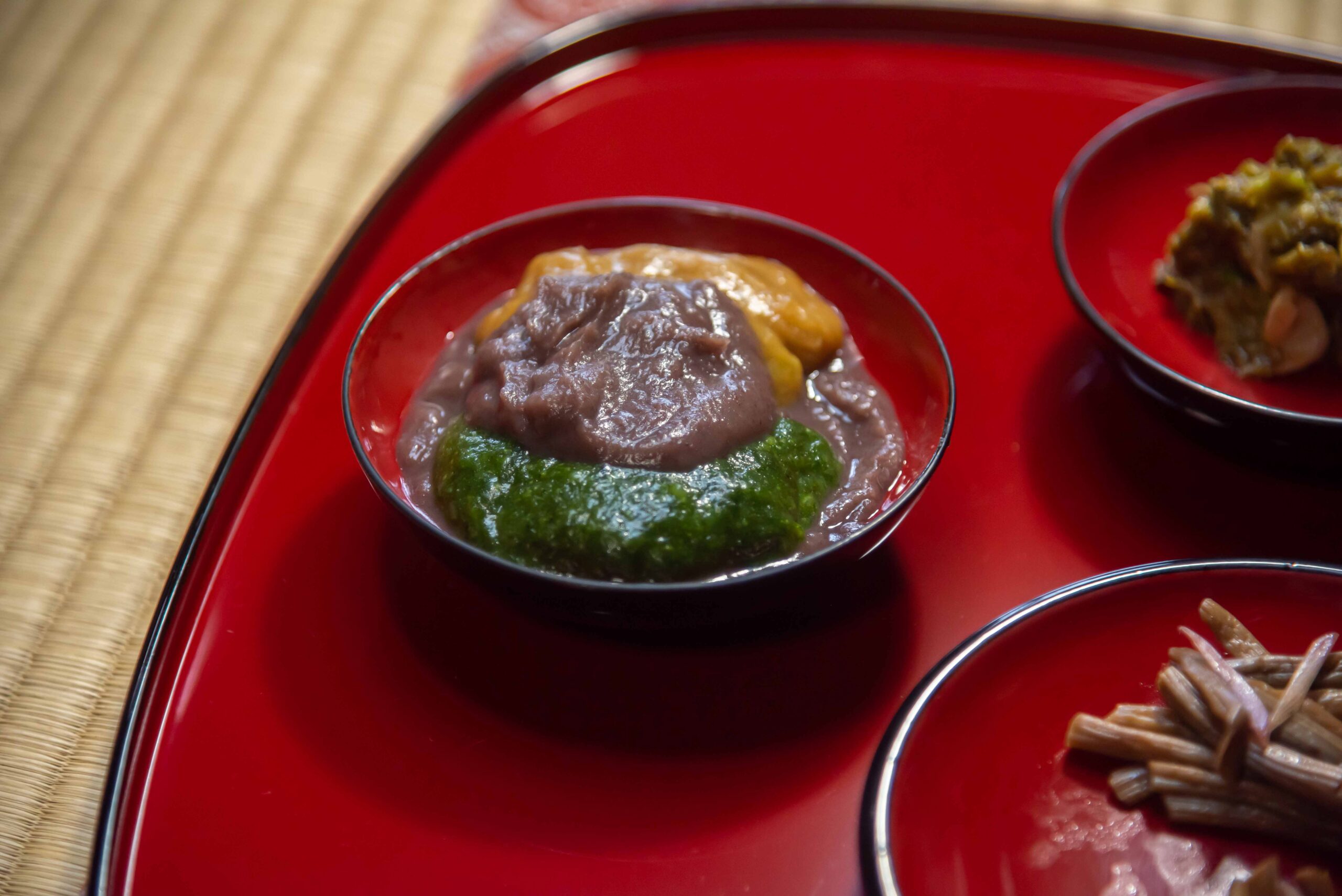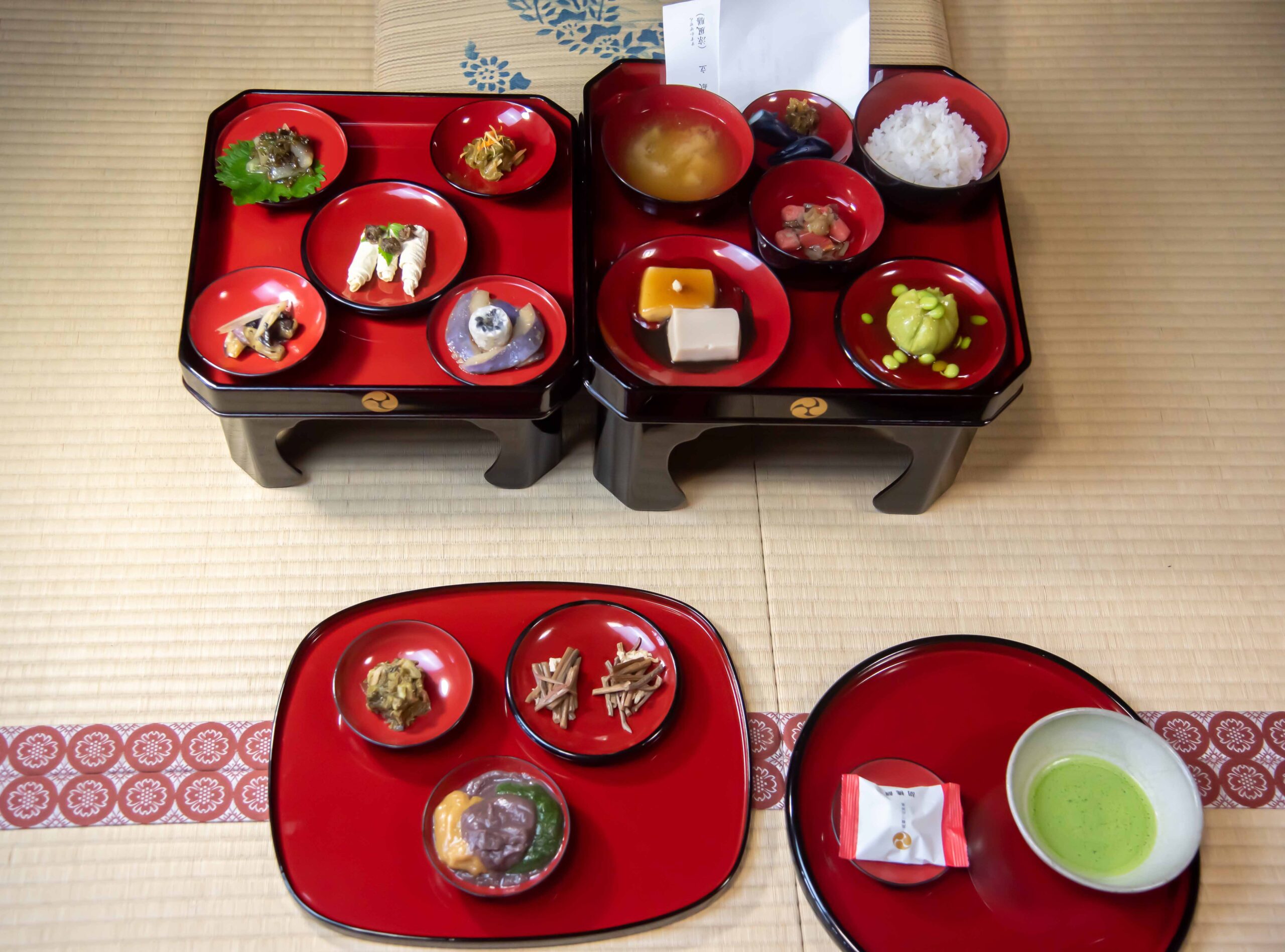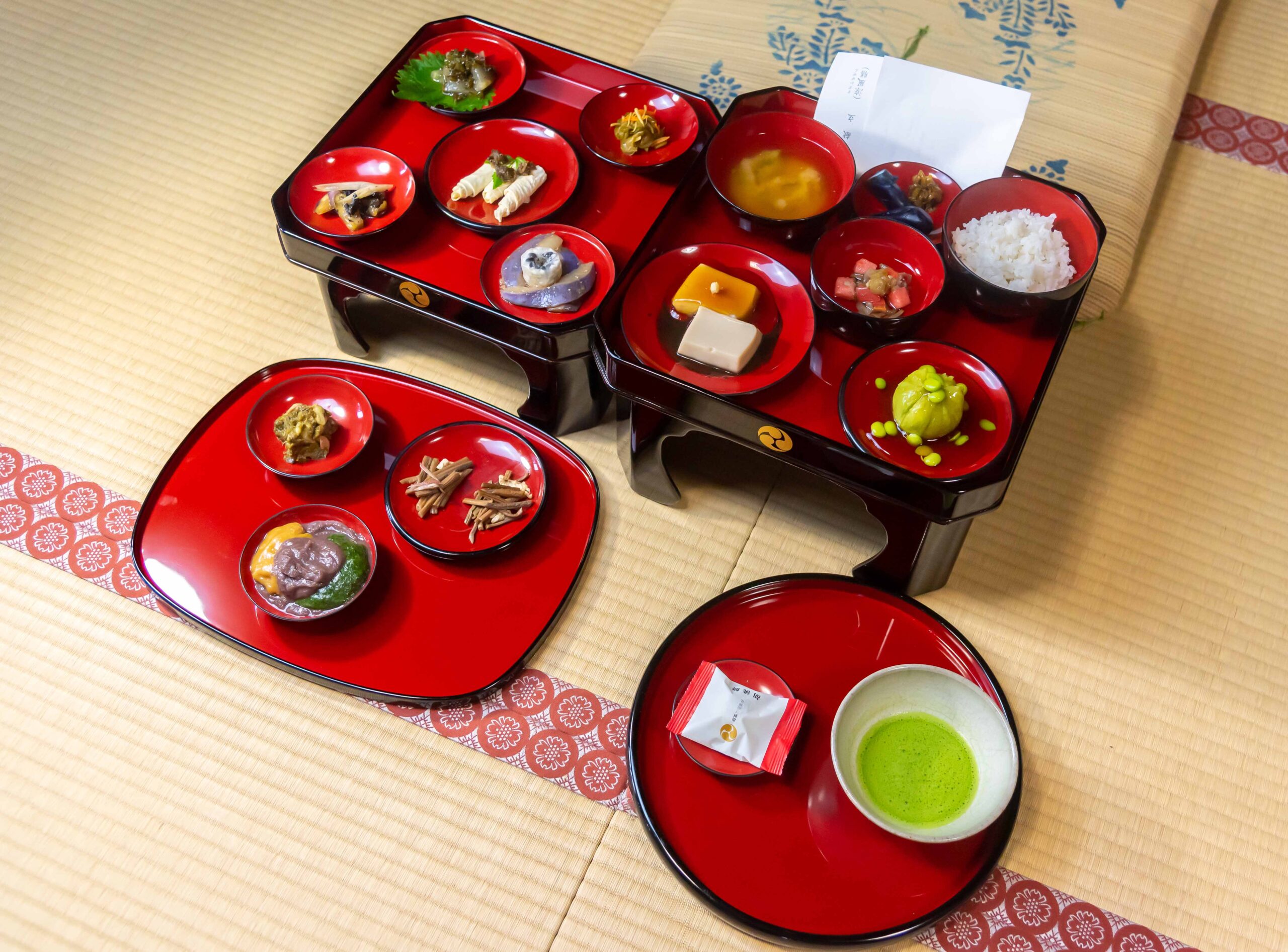
Dewa Sanzan’s Shojin-ryori 出羽三山精進料理
Shojin-ryori 精進料理 (“the food for spiritual elevation”)’s origins stems from Buddhism. It is a type of food that was elaborated in order to fit Buddha’s precepts of non-violence (veganism) and spiritual focus (no use of ingredients with strong odors that could disturb the trainee’s mind). However, in the Dewa Sanzan, as the religious separation between Buddhism and Shintoism occured in 1869, making the Buddhist temples convert to Shintoism all across the Dewa Sanzan, the food has evolved from its original Buddhism ancestry and has integrated Shintoist principles in its elaboration process.
For example, Dewa Sanzan’s shojin-ryori is not strictly vegan anymore as Shinto has no dietary restriction regarding fish. This is why it incorporates bonito powder (known as “katsuo-dashi”) in dishes like miso-soups or miso-based sauces. However, the use of non-fish animals flesh is still prohibited as it is regarded as “impure” in the Shinto religion. For the same reason, ingredients that are normally prohibited in the Buddhist shojin-ryori like ginger, onion or leek for the reason they are seen as “mind disturbances” in the Buddhist religion, can be found in the Dewa Sanzan’s shojin-ryori menu.
Dewa Sanzan’s shojin-ryori has been thought to offer the customers an overview of the bounties in the mountains by featuring seasonal “sansai” (mountain edible plants, or “mountain vegetables”) and fruits. The menu varies according to the season. In spring, customers will find a big variety of sansai as it is the season where most of them can be gathered in the forests. In summer, there will be many dishes with summer vegetables grown by the villagers in the mountain such as : eggplant, tomato, okra, dadachamame… Autumn is the season of mushrooms so customers will enjoy many dishes like maitake tempura, nameko miso soup, or shiitake simmered in miso. Winter is the season when customers can discover all the efforts the villagers have put into preserving the food in the Summer/Autumn season through pickling or salting processes with dishes like: salted warabi ferns, salted cucumber pickles or cabbage in vinegar.
Dewa Sanzan’s Shojin-ryori can be enjoyed in the shukubo lodges and ryokan in Mt. Haguro or in Mt. Yudono’s Sanrojo pilgrim lodge. However, a reservation must be made prior to the customer’s arrival as each meal is prepared one by one. If you need your menu to be vegan, please inquire to the restaurant of your choice if they can cater to your needs beforehand.
Average price for a Shojin-ryori lunch in the Dewa Sanzan : 3600 – 4200 yen
List of places to eat Shojin-ryori:
Tamonkan – Reservation by email : toki-a@blue.plala.or.jp
Daishinbo – Reservation online (starting from 5 persons)
Saikan – Reservation by phone : (+81) 0235-62-2357
Sanzan Daiai Kyokai (Choenbo, Chodenbo) – Reservation by phone (+81) 0235-62-2282
Kanbayashibo – Reservation by email: katukane@minos.ocn.en.jp (starting from 2 persons, 7 days before desired date of lunch)

